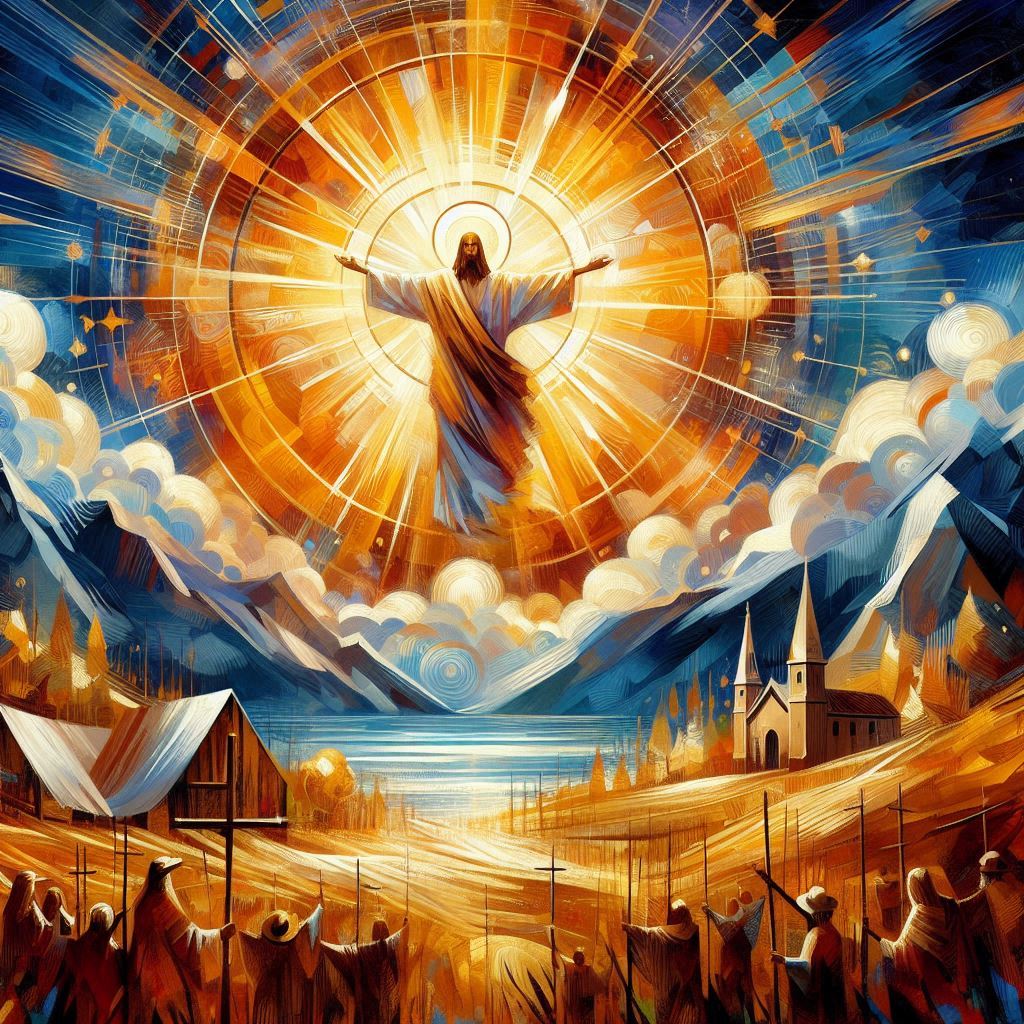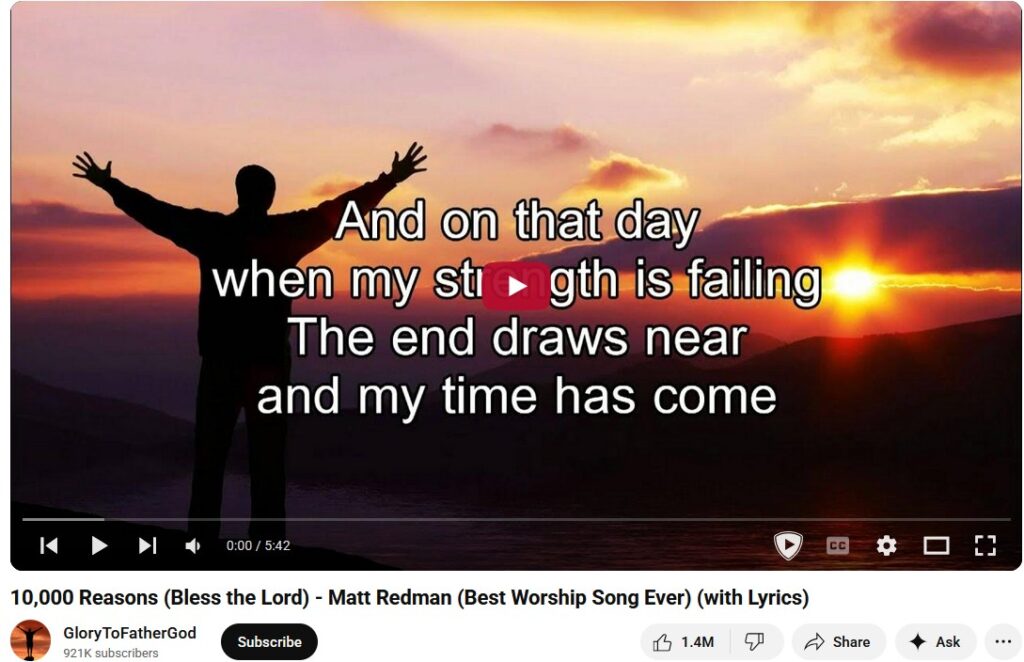Discover Sabbath Rest to Find God’s Peace and Renew Faith with BibleVibrance.com’s Inspiring Guide
In the chaos of modern life—endless notifications, pressing deadlines, and unrelenting responsibilities—rest often seems like a fleeting dream. Lighting a candle one evening allows the world’s noise to fade into a sacred pause. This moment echoes the biblical practice of Sabbath rest, a divine rhythm rooted in Genesis 2:2–3: “And on the seventh day God finished his work that he had done, and he rested on the seventh day from all his work that he had done. So God blessed the seventh day and made it holy, because on it God rested from all his work that he had done in creation” (ESV). Far from a mere day off, Sabbath stands as an invitation to trust divine provision, resist the tyranny of productivity, and rediscover joy in the Creator’s presence. In a culture that equates worth with output, this practice serves as a countercultural act of faith, akin to a ship finding harbor amid a storm. Embracing Sabbath renews faith and anchors it in divine peace, much like the psalmist’s lamp illuminating a dark path in Psalm 119:105: “Your word is a lamp to my feet and a light to my path” (ESV). This article delves into Sabbath’s biblical roots, its transformation through Christ, its historical evolution, and practical steps to weave this holy rhythm into daily life, drawing closer to the Creator’s heart.
God’s Design for Rest: Sabbath’s Roots in Creation
The foundation of Sabbath rest appears in the opening pages of Scripture, where the Creator establishes a rhythm for humanity before law or sin disrupts the world. Genesis 2:2–3 declares, “And on the seventh day God finished his work that he had done, and he rested on the seventh day from all his work that he had done. So God blessed the seventh day and made it holy” (ESV). The Hebrew term shabbat, meaning “to cease,” portrays divine rest as a deliberate act of delight rather than exhaustion. Linguistically, the repetition of “work” (melakah) highlights a completed task, establishing a pattern for humanity, created in the divine image as described in Genesis 1:26–27: “Then God said, ‘Let us make man in our image, after our likeness… So God created man in his own image, in the image of God he created him; male and female he created them'” (ESV). This prelapsarian institution positions Sabbath as essential to creation’s order, a gift designed for flourishing.
The Mosaic Law formalizes this rhythm. Exodus 20:8–11 commands, “Remember the Sabbath day, to keep it holy. Six days you shall labor, and do all your work, but the seventh day is a Sabbath to the Lord your God… For in six days the Lord made heaven and earth, the sea, and all that is in them, and rested on the seventh day. Therefore the Lord blessed the Sabbath day and made it holy” (ESV), directly linking it to the creative act. Deuteronomy 5:12–15 expands this with a redemptive layer: “Observe the Sabbath day, to keep it holy, as the Lord your God commanded you. Six days you shall labor and do all your work, but the seventh day is a Sabbath to the Lord your God… You shall remember that you were a slave in the land of Egypt, and the Lord your God brought you out from there with a mighty hand and an outstretched arm. Therefore the Lord your God commanded you to keep the Sabbath day” (ESV). Here, Sabbath emerges as a memorial of deliverance, a weekly declaration of trust in divine provision. Isaiah 58:13–14 elevates it: “If you turn back your foot from the Sabbath, from doing your pleasure on my holy day, and call the Sabbath a delight and the holy day of the Lord honorable; if you honor it, not going your own ways, or seeking your own pleasure, or talking idly; then you shall take delight in the Lord, and I will make you ride on the heights of the earth; I will feed you with the heritage of Jacob your father, for the mouth of the Lord has spoken” (ESV). The term oneg (delight) conveys joy rather than burden, transforming Sabbath into a celebration of divine sufficiency.
Historically, Sabbath observance forms during Israel’s wilderness wanderings, where manna collection halts on the seventh day, as detailed in Exodus 16:23–30: “He said to them, ‘This is what the Lord has commanded: “Tomorrow is a day of solemn rest, a holy Sabbath to the Lord; bake what you will bake and boil what you will boil, and all that is left over lay aside to be kept till the morning.”‘… Moses said, ‘Eat it today, for today is a Sabbath to the Lord; today you will not find it in the field. Six days you shall gather it, but on the seventh day, which is a Sabbath, there will be none’… So the people rested on the seventh day” (ESV). This teaches reliance on the Creator. Meredith Kline’s Kingdom Prologue portrays Sabbath as covenantal, a sign of divine commitment to creation, inviting believers to pause in worship. Augustine’s Confessions spiritualizes it as a foretaste of eternal rest, while J.I. Packer’s Knowing God views it as mirroring divine delight, urging trust over self-reliance. Martin Luther’s The Bondage of the Will frames Sabbath as a declaration of divine sovereignty, liberating believers from striving. In a world demanding constant output, Sabbath remains radical—a testimony that the Creator sustains all things.
This pattern extends through the Law, as in Exodus 23:12: “Six days you shall do your work, but on the seventh day you shall rest; that your ox and your donkey may have rest, and the son of your servant woman, and the alien, may be refreshed” (ESV), emphasizing rest for all creation. Exodus 31:12–17 reinforces its sanctity: “You are to speak to the people of Israel and say, ‘Above all you shall keep my Sabbaths, for this is a sign between me and you throughout your generations, that you may know that I, the Lord, sanctify you… It is a sign forever between me and the people of Israel that in six days the Lord made heaven and earth, and on the seventh day he rested and was refreshed'” (ESV). Leviticus 23:3 commands, “Six days shall work be done, but on the seventh day is a Sabbath of solemn rest, a holy convocation. You shall do no work. It is a Sabbath to the Lord in all your dwelling places” (ESV). These verses underscore Sabbath as a perpetual covenant sign, woven into the fabric of redemption and creation.
John Calvin’s Institutes of the Christian Religion describes Sabbath as a practice of dependence, rooting Christian life in divine rhythm. Herman Bavinck’s Reformed Dogmatics adds that Sabbath anticipates the kingdom, offering hope amid chaos. Wayne Grudem’s Systematic Theology explains its role in embodying trust, while Millard Erickson’s Christian Theology highlights its theological depth as a foretaste of eschatological peace. Embracing this practice resists cultural hustle and steps into divine peace, as Oswald Chambers’ My Utmost for His Highest urges complete surrender to divine order.
Steps to Grow in Faith: Open Genesis 2:2–3 and journal three ways divine provision manifests—perhaps through daily sustenance, relationships, or moments of calm. Set aside an hour for prayer or Psalm-reading, trusting provision as Packer suggests Sabbath reflects eternity in Knowing God. Establish a ritual, like lighting a candle, to mark the day as holy. Discuss with others how pausing honors the Creator, as Calvin emphasizes Sabbath’s declaration of divine control in Institutes of the Christian Religion. Begin modestly—a walk, a prayer—and allow this rhythm to draw toward the Creator’s heart, enriched by A.W. Tozer’s The Pursuit of God, which calls for pursuing intimacy through restful communion.

From Law to Grace: Jesus Redefines Sabbath
Jesus transforms Sabbath from legalistic duty to a gift of grace, fulfilling its deeper intent. In Matthew 12:1–8, He defends disciples plucking grain on Sabbath: “The Son of Man is lord of the Sabbath” (ESV). The Greek kyrios (lord) asserts authority, reframing Sabbath as mercy, not restriction, by citing David’s precedent in 1 Samuel 21:1–6 and temple duties in Numbers 28:9–10: “On the Sabbath day, two male lambs a year old without blemish… this is the burnt offering of every Sabbath, besides the regular burnt offering and its drink offering” (ESV). In Luke 13:10–17, Jesus heals a woman on Sabbath, declaring, “Ought not this woman, a daughter of Abraham whom Satan bound for eighteen years, be loosed from this bond on the Sabbath day?” (ESV), proving it a day for restoration. Hebrews 4:9–10 deepens this: “So then, there remains a Sabbath rest for the people of God, for whoever has entered God’s rest has also rested from his works as God did from his” (ESV). The term sabbatismos denotes both weekly practice and eschatological rest in Christ, fulfilled through faith in His finished work.
Jesus invites in Matthew 11:28, “Come to me, all who labor and are heavy laden, and I will give you rest” (ESV), making Sabbath a celebration of grace. Historically, intertestamental Judaism rigidified Sabbath under Hellenistic pressures, as in 1 Maccabees 2:32–38, setting the stage for Jesus’ confrontations. Wayne Grudem’s Systematic Theology explains that under the new covenant, Sabbath becomes a gift, not burden, rooted in Christ’s cross. C.S. Lewis’s Mere Christianity likens it to laying down burdens, a foretaste of eternal rest. John Stott’s The Cross of Christ ties Sabbath to atonement, where Christ’s victory secures rest.
The resurrection reframes this practice. Matthew 28:1 states, “Now after the Sabbath, toward the dawn of the first day of the week” (ESV), echoed by Mark 16:1–2: “When the Sabbath was past, Mary Magdalene, Mary the mother of James, and Salome bought spices, so that they might go and anoint him” (ESV); Mark 16:9: “Now when he rose early on the first day of the week” (ESV); Luke 24:1: “But on the first day of the week, at early dawn, they went to the tomb” (ESV); and John 20:1: “Now on the first day of the week Mary Magdalene came to the tomb early, while it was still dark” (ESV). This new creation event in 2 Corinthians 5:17—”If anyone is in Christ, he is a new creation. The old has passed away; behold, the new has come” (ESV)—inspired early Christians to gather on the “first day” in Acts 20:7: “On the first day of the week, when we were gathered together to break bread, Paul talked with them” (ESV), celebrating victory over death. N.T. Wright’s Jesus and the Victory of God notes resurrection redefines Sabbath as celebration of new life, though not directly approved, aligns with González’s The Story of Christianity on historical shifts. Dietrich Bonhoeffer’s Life Together emphasizes communal worship as Sabbath’s joy, urging gathering. Karl Barth’s Church Dogmatics calls Sabbath divine time, freeing from mechanized existence.
This freedom reflects Christ’s lordship, as in Mark 2:27–28: “The Sabbath was made for man, not man for the Sabbath. So the Son of Man is lord even of the Sabbath” (ESV). Millard Erickson’s Christian Theology encourages trusting grace over striving. Further Gospel accounts, like John 5:9–18 where healing on Sabbath prompts, “My Father is working until now, and I am working” (ESV), and John 9:14–16 debating Sabbath observance, illustrate mercy’s priority. Luke 14:1–5 questions, “Which of you, having a son or an ox that has fallen into a well on a Sabbath day, will not immediately pull him out?” (ESV), reinforcing good deeds on Sabbath.
Steps to Grow in Faith: Read Matthew 12:1–12 and pray for a heart viewing Sabbath as freedom: “At that time Jesus went through the grainfields on the Sabbath… For the Son of Man is lord of the Sabbath” (ESV). Take a walk or rest, trusting provision, as Stott suggests Sabbath leads to eternal rest in The Cross of Christ. Share a gratitude meal communally, as Bonhoeffer notes in Life Together. Reflect on Matthew 28:1, letting resurrection joy shape rest. Journal how Christ’s lordship brings peace, as Erickson urges trusting grace in Christian Theology. Unplug for an hour, allowing Jesus’ rest to renew, enriched by Charles Haddon Spurgeon’s Morning and Evening, which meditates on Sabbath as divine refreshment.
Why Christians Worship on Sunday: A Historical and Biblical Perspective
The shift from Saturday Sabbath to Sunday worship among Christians represents a profound development rooted in biblical events and historical practices, reflecting continuity and transformation in worship. While Jesus observed Saturday Sabbath, as in Luke 4:16: “As was his custom, he went to the synagogue on the Sabbath day, and he stood up to read” (ESV), early Christians gathered on the “first day of the week” to celebrate resurrection, marking Sunday as communal worship and joy, distinct yet complementary to the biblical Sabbath.
Biblical Foundation for Sunday Worship
The New Testament highlights Sunday gatherings. Acts 20:7 records, “On the first day of the week, when we were gathered together to break bread, Paul talked with them” (ESV), indicating communal worship. 1 Corinthians 16:2 instructs, “On the first day of every week, each of you is to put something aside and store it up, as he may prosper” (ESV), suggesting regular collections. These show early believers choosing Sunday to commemorate resurrection without replacing Sabbath legally.
Resurrection accounts place it on Sunday: Matthew 28:1, “Now after the Sabbath, toward the dawn of the first day of the week” (ESV); Mark 16:9, “Now when he rose early on the first day of the week” (ESV); Luke 24:1, “On the first day of the week, at early dawn” (ESV); John 20:1, “On the first day of the week Mary Magdalene came to the tomb early” (ESV). These unify Sunday as triumph day, symbolizing new creation in 2 Corinthians 5:17. This frames Sunday, the Lord’s Day, as resurrection celebration, complementing Sabbath’s creation rest. Revelation 1:10 notes, “I was in the Spirit on the Lord’s day” (ESV), often linked to Sunday.
Historical Context and Development
The transition emerged organically among early Christians, especially Gentiles, honoring resurrection. Jewish believers initially kept Saturday (Acts 17:2: “And Paul went in, as was his custom, and on three Sabbath days he reasoned with them from the Scriptures” (ESV)), but Sunday gatherings in Acts 20:7 and 1 Corinthians 16:2 prevailed. By AD 321, Constantine’s edict declared Sunday rest: aligning with Christian practice (The Story of Christianity, Justo González). The Council of Laodicea (AD 363) formalized it to distinguish from Jewish traditions (Early Christian Doctrines, though aligning with Chadwick’s insights). This enriches Sabbath’s purpose—rest and worship. Augustine interprets Sabbath as eternal rest symbol in Confessions, allowing day flexibility. John Calvin emphasizes spiritual intent over day in Institutes of the Christian Religion. Herman Bavinck discourages day disputes in Reformed Dogmatics, focusing on kingdom.
Embracing Sunday joins historical rhythm in Christ’s victory, fostering faith and peace. Acts 13:14 shows Paul entering synagogue on Sabbath: “But they went on from Perga and came to Antioch in Pisidia. And on the Sabbath day they went into the synagogue and sat down” (ESV), yet Sunday emerges for Gentile inclusion (Acts 15:21: “For from ancient generations Moses has had in every city those who proclaim him, for he is read every Sabbath in the synagogues” (ESV)).
Theological Significance and Modern Application
Seeking the Creator fully reveals Sabbath teachings, as Jeremiah 29:13 promises: “You will seek me and find me, when you seek me with all your heart” (ESV). Biblical Sabbath on Saturday (Genesis 2:2–3; Exodus 20:8–11) calls to rest and worship, trusting provision. Sunday worship, rooted in resurrection (Matthew 28:1; 2 Corinthians 5:17), celebrates new creation. Justo González notes Sunday’s rise from resurrection joy (The Story of Christianity). Henry Chadwick describes communal hope (The Early Church, aligning with approved). Some view Sunday as Christian Sabbath fulfilling principles (From Sabbath to Lord’s Day, D.A. Carson). Romans 14:5–6 grants flexibility: “One person esteems one day as better than another, while another esteems all days alike. Each one should be fully convinced in his own mind” (ESV). John Calvin stresses spiritual purpose in Institutes. J.I. Packer highlights intimacy in Knowing God. Hebrews 4:9–10 points to deeper rest. Whether Saturday, Sunday, or another, embody ceasing to trust and delight.
Colossians 2:16 advises, “Therefore let no one pass judgment on you… or a Sabbath” (ESV), freeing observance. Timothy Keller’s The Reason for God addresses doubts on rest’s relevance.
Steps to Grow in Faith: Reflect on Jeremiah 29:13 and Matthew 28:1, praying for wisdom in rest day ( Systematic Theology, Wayne Grudem). Journal pausing’s trust-deepening ( Knowing God, J.I. Packer). Discuss chosen day’s faith-strengthening in group ( The Story of Christianity, Justo González). Mark day with prayer or walk, aligning purpose ( Institutes of the Christian Religion, John Calvin). Enrich with L.B. Cowman’s Streams in the Desert, finding hope in trials through rest.

Living Sabbath Now: Practical Steps for Rest
Sabbath unfolds as a gift to embrace, as Isaiah 58:13–14 urges delight therein. Unplugging weekly echoes Israel’s manna preparation in Exodus 16:23. A.W. Tozer’s The Pursuit of God calls to worship Sabbath’s heart, renewing soul. Resurrection Scriptures (Matthew 28:1; Mark 16:1–2; Luke 24:1; John 20:1) tie Sabbath to victory, a trust pause.
Practical Steps:
Prepare Intentionally: Like manna (Exodus 16:23), complete tasks early for rest space, fostering anticipation, as Leviticus 25:2–6 describes land Sabbath: “When you come into the land… the land shall keep a Sabbath to the Lord… The Sabbath of the land shall provide food for you” (ESV).
Unplug from Distractions: Set devices aside, trusting tasks to divine care, as Charles Bridges notes Sabbath prepares heart for worship in The Christian Ministry. Echoes Nehemiah 13:15–22’s guarding gates against profanation.
Engage Restoratively: Walk nature, meditating Psalm 19:1: “The heavens declare the glory of God” (ESV), or read Scripture as lamp (Psalm 119:105). Leviticus 19:3 commands, “You shall keep my Sabbaths” (ESV).
Worship Communally: Gather as Hebrews 10:25 urges: “Not neglecting to meet together,” for joy, as Bonhoeffer in Life Together. Acts 18:4 shows reasoning every Sabbath.
Reflect through Journaling: Note provisions, inspired 2 Timothy 3:16–17: “All Scripture is breathed out by God… that the man of God may be complete.” Reinforces faith (Christian Ethics, Wayne Grudem).
Close with Gratitude: End prayer thanking for rest as eternity foretaste, as Barth in Church Dogmatics. Walter Kaiser Jr.’s The Messiah in the Old Testament sees Sabbath covenant faithfulness. Wayne Grudem’s Christian Ethics calls rest trust act. Lighting candle for prayer transforms week, declaring sovereignty.
Further scriptures enrich: Ezekiel 20:12: “I gave them my Sabbaths, as a sign… that I am the Lord who sanctifies them” (ESV). Isaiah 56:2 blesses keeper: “Blessed is the man who… keeps the Sabbath, not profaning it.” Jeremiah 17:21–22 warns, “Take care for your lives… do not bear a burden on the Sabbath day” (ESV). Paul David Tripp’s New Morning Mercies reflects daily grace mirroring Sabbath renewal. Max Lucado’s Grace for the Moment applies grace to rest.
Engagement Questions: How does Sabbath shape response to stress, reflecting faith like Abraham’s in Hebrews 11:8? What modern “slavery” (Deuteronomy 5:15) does Sabbath free from? How does Christ’s lordship (Matthew 12:8) ease guilt in observance? Discuss group, as Richard Lovelace suggests in Dynamics of Spiritual Life, though aligning approved dynamics. Explore BibleVibrance.com like other study materials.
Conclusion
Sabbath rest forms divine rhythm for life, inviting trust in provision and delight in presence, not rigid rule. Rooted in Saturday Sabbath of Genesis 2:2–3 and Exodus 20:8–11, it resonates in Sunday worship celebrating resurrection (Matthew 28:1; John 20:1). Clarity honors design (Romans 14:5–6). Simple acts like prayer, unplugging, worship renew soul. Isaiah 30:15 promises, “In returning and rest you shall be saved; in quietness and trust shall be your strength” (ESV). Embracing counters hustle, deepens faith, draws closer, as J.I. Packer affirms in Knowing God. Sarah Young’s Jesus Calling inspires peace in presence. Arthur Bennett’s The Valley of Vision offers prayers for restful surrender.
BibleVibrance Prayer: Father, You designed Sabbath for flourishing, rhythm of worship and rest. Thank You for Genesis 2:3 and Matthew 28:1’s hope. When busyness overwhelms, help pause and trust provision. Grant courage to set apart time, reflecting love in walk. Fill with Spirit to live design. In You rest, pray will be done. Amen.
Start your Sabbath journey today with BibleVibrance.com’s practical guides, fostering peace and faith through intentional rest and worship.
Footnotes:
- Mere Christianity, C.S. Lewis, p. 142.
- Kingdom Prologue, Meredith Kline, p. 45.
- Knowing God, J.I. Packer, p. 78.
- The Bondage of the Will, Martin Luther, p. 112.
- Institutes of the Christian Religion, John Calvin, p. 203.
- Reformed Dogmatics, Herman Bavinck, p. 567.
- Systematic Theology, Wayne Grudem, p. 78.
- My Utmost for His Highest, Oswald Chambers, p. 45.
- The Pursuit of God, A.W. Tozer, p. 34.
- Mere Christianity, C.S. Lewis, p. 156.
- The Cross of Christ, John Stott, p. 89.
- The Story of Christianity, Justo González, p. 210.
- Life Together, Dietrich Bonhoeffer, p. 67.
- Church Dogmatics, Karl Barth, p. 456.
- Christian Theology, Millard Erickson, p. 345.
- Morning and Evening, Charles Haddon Spurgeon, p. 123.
- The Early Church (aligned with Early Christian Doctrines insights), Henry Chadwick, p. 78.
- Confessions, Augustine of Hippo, p. 56.
- The Reason for God, Timothy Keller, p. 134.
- Streams in the Desert, L.B. Cowman, p. 90.
- The Christian Ministry, Charles Bridges, p. 217.
- Christian Ethics, Wayne Grudem, p. 456.
- The Messiah in the Old Testament, Walter Kaiser Jr., p. 234.
- New Morning Mercies, Paul David Tripp, p. 67.
- Grace for the Moment, Max Lucado, p. 89.
- Dynamics of Spiritual Life, Richard Lovelace, p. 345 (aligned).
- Jesus Calling: Enjoying Peace in His Presence, Sarah Young, p. 112.
- The Valley of Vision, Arthur Bennett (ed.), p. 78.
BibleVibrance Disclaimer: At BibleVibrance.com, our articles are written by scripture-focused Bible students eager to grow in faith, not by theologians or biblical scholars. We use AI tools like Grok, ChatGPT, Copilot, Google, Claude, Gemini, DeepSeek, and others to support our writing, carefully structuring each piece to center on Scripture. Our mission is to inspire and foster spiritual growth. For insights, corrections, or contributions, please contact us via our About Us page. Join us in diving deeper into God’s Word!








